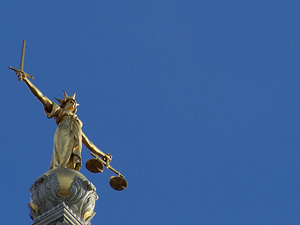
HM Courts and Tribunals Service held a public event on 6 November, inviting those who represent public court users to see first-hand the progress made over the last year with the court reform program.
One such representative was Roger Smith who has reported back, generally positively, on his Law, Technology & Acees to Justice blog.
HMCTS has around 50 distinct digital projects on the go, of which Roger says:
“It seems likely that, overall and with some exceptions, [HMCTS] is doing a fair job in transforming government – for all that the politicians’ aspiration of digital by default may be overblown. The formats of its online documents are clean, serviceable and well branded. You can see that in the developing court documentation. The petition, for example, that is being drafted for online divorce is noticeably from the same stable – and manifesting the same style – as other government forms such as those relating to cars or passports. And, more generally, the incorporation of agile methodologies, collaborative approaches and a commitment to user-centredness is transforming how government reforms delivery.”
Problems that remain in his view are, first, that the need for assistance for litigants in person is becoming increasingly apparent; about a quarter of prospective users probably cannot access digital court processes, through lack of both digital and legal capability. Secondly, the detail of what will be implemented is not known. Thirdly, there remain no access to justice indicators driving the programme, only financial and staff savings.
Just press the “sue” button
Another championing access to justice from a rather different standpoint is Joshua Browder, whose DoNotPay “robot lawyer”, initially developed to challenge parking tickets, continues to make headlines. With the recent release of the DoNotPay app in the iTunes appstore, its scope has been considerably extended.
“Big news! You can now sue anyone (in all 50 US states and 3,000 counties), fight corporations and beat bureaucracy with the DoNotPay App! All 15 of the new products are completely free.” — (@jbrowder1 on Twitter)
A useful review with more detail of the scope is on Bob Ambrogi’s LawSites blog.
Many attorneys are not happy with the way things are going, some accusing him of practising law without a licence, though none has yet taken action.
Josh King, formerly CEO of lawyer ratings service Avvo, writing on his Socially Awkward blog thinks consumers should be able to make a choice about using the DoNotPay app in the same way they make choices about other DIY law offerings:
“DNP is, for all legal purposes, a publishing exercise in that it offers generalized guidance. It doesn’t matter that this guidance is user-centric, interactive, and detailed: there is no client relationship of trust and reliance, no human intervention, no exercise of legal judgment. There’s simply no way it meets any constitutional definition of ‘the practice of law.'”
As to the criticism that such apps cannot provide for the “specialness” of legal issues, he says, “The bottom line is that most consumer legal issues are simple and straightforward, and thus CAN be met with cookie-cutter solutions, and for many of these consumers such solutions are superior to working with an attorney.”
In the UK, Richard Moorehead, Professor of Law and Professional Ethics at UCL, is less impressed, having tested the DoNotPay app on a particular, somewhat fictionalised, parking scenario and finding that it lied on his behalf:
“So here is the innovation ethics dilemma. DoNotPay was, to use the jargon, a minimally viable product. It is crude, but for some effective: Browder’s unverified testing estimates about 50% of users win their cases. If that is right, it would help many people challenge parking tickets, or similar events, and does so in a way which is very easy-to-use, has none of the problems associated with using lawyers or websites to cobble together information. It allows some people to hop and skip effortlessly over traditional access to justice barriers. But it also encourages the making of meritless claims; if my experience is widespread, encourages the making of misleading or dishonest claims; and it provides a very rough, low competence version of lawyer which may jeopardise the interests of clients with good cases if, and it is a big if, they would otherwise go elsewhere. Are those ethical risks worth the access to justice gains?”
Data-driven innovation
One of the 15 winning bidders for the Department for Business, Energy & Industrial Strategy’s £10 million Regulators’ Pioneer Fund is the Solicitors Regulation Authority. It has won £700K for its Data-Driven Innovation in Legal Services project which “will seek out and accelerate ethical AI-powered business innovations that support their regulatory objectives. The focus will be on growing the large underdeveloped legal services market for small businesses and consumers, where AI and automation can have a transformative impact.”
Paul Philip, SRA chief executive, said, “Smart use of technology could help tackle the problem that far too many people struggle to access expert legal advice” and that the grant “will help us further build on our work to encourage new ways of delivering legal services, benefiting both the public and small business.”
Surprisingly there is no mention of the project on the SRA site.
BEIS’s report: Projects lay the groundwork for a future of robolawyers and flying cars.
Nick Holmes is Editor of the Internet Newsletter for Lawyers.
Image: Justice cc by sa OpenDemocracy on Flickr.